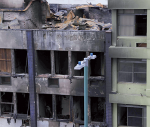You are here
A taxi driver’s dilemma
Jan 23,2017 - Last updated at Jan 23,2017
Public transportation has been a topic of discussion lately, specifically how it relates to taxis and ride hailing apps.
Transportation affects everyone. Anything revolving around it stirs up public opinion.
Here is my attempt to explain the situation in the simplest terms.
It is no secret that Jordan lacks the fundamentals of a public transport system.
In modern cities, taxis complement the transportation infrastructure, whether it is buses, trains or rapid transit systems.
Taxis are almost never used exclusively in large cities. In Jordan, however, they are the only viable alternative to the lacking public transport system.
The majority of taxi users are dissatisfied; not only customers, but drivers as well.
The quality of taxis has deteriorated drastically and is unlikely to improve under the current setup.
Here are some of the reasons why.
The story begins with taxi medallions. These were “granted” on an ad hoc basis, they were not sold by the government.
Their numbers were limited, though, making them in high demand.
Inflation kicked in; what was originally given out as aid for extra income became as valuable as owning land. Their value grew to tens of thousands of dinars.
Recipients of these medallions were not only allowed to trade/sell them, but also to pass them on to their next-of-kin after their death.
At one point, banks advertised loans to purchase them.
This is all wonderful, if you are the owner of one, of course.
If you are the owner of a medallion, you can purchase a medium-size 2017 car free of customs for JD10,000 and employ it as a taxi.
If you want to purchase one, though, you must add the price of a medallion (roughly JD50,000 today) along with bank interest, where a single taxi can cost JD70,000.
Most of these sales take place on the black market, none of it reaches the Treasury, and the public does not benefit from it.
When an individual invests JD70,000, the only way to make a return on the investment is to charge a driver renting his car a premium (daman).
Average prices of taxi rent is JD25 a day all year round. A reasonably safe investment for the owners.
Medallions in Amman are capped at 11,000; it has been the same number of medallions since our population was just over a million, but we are at 4 million today and it is still the same cap.
This guarantees owners a high demand. Especially with our unemployment rates, there is no shortage of drivers willing to pay.
Things are less financially rewarding for the drivers.
If you are a taxi driver, you need first to earn JD25 rent, then JD15 for fuel to cover your cost.
If you are lucky, at the end of the day you earn JD15 extra, to make JD450 a month. That is if you work 12-hour shifts, through weekends and sick days, and if you take no days off. All, while not enrolling in social security or health insurance. A sure recipe to kill morale and incentive for all your drivers and diminish any sense of quality to the public.
Adding salt to injury, a taxi is restricted to a tariff set by the municipality, in alignment with the Land Transport Regulatory Commission.
It is a tariff that caters to people’s economics, not the drivers’, mainly because taxis are a primary source of transportation and the public cannot afford to pay a higher rate.
Taxi drivers not only have to bear enslavement to medallion owners, they must also work to make up for the shortcomings of past governments to provide better means of transport.
They work for unfair pay that barely covers their cost.
A good example is waiting/idle time (time on traffic light), which is less than JD1.2 per hour (ride hailing apps charge 4 times that). Twenty hours in slow traffic barely cover the cost of rent alone.
This is the same reason many taxi drivers ask customers about their destination or ask for an extra charge before picking them up, as any traffic/waiting time is a certain loss for the driver.
This is the current situation.
We have a few privileged medallion owners that have benefited from the system, in addition to the drivers that have worked all their lives to buy one, a largely dissatisfied public, a pricing structure that does not make financial sense, and a huge pool of dissatisfied drivers who are angry and frustrated, or who must act outside the law/regulation to earn a living, which makes them attack technology and foreign investments in the sector.
The situation is not favourable, but it is salvageable.
Now is the time to start fixing the situation, to start involving the private sector to help regain trust in the sector and make it contribute to finding a solution.
The transport sector is lucrative. It is one that can create twice as many jobs as it employs today.
It is a sector we must open up and allow interested investors to take a part in.
The writer is head of Careem Levant. He contributed this article to The Jordan Times.













